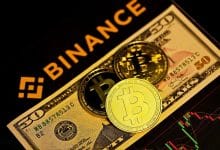Krungsri Bank anticipates Thai baht fluctuation amid global market developments

The Global Markets team at Krungsri Bank predicts a movement in the Thai baht this week within the range of 35.40 to 36.00 baht per US dollar. Last week, the baht closed weaker at 35.79 baht per US dollar after trading in the range of 35.43 to 35.82 baht per US dollar.
The dollar strengthened against the euro but held steady against the yen last week. The US general consumer price index (CPI) increased by 3.7% year-on-year in August, up from a 3.2% increase in July. Furthermore, the core CPI, excluding food and energy prices, rose by 4.3% in August, slowing from 4.7% in July.
In addition, the US retail sales and producer price index for August exceeded expectations, signalling that the economy might be slowing but not entering a recession.
The European Central Bank (ECB) decided to raise the deposit rate by 25 basis points to 4.00%, a record high since the euro currency was introduced. However, the ECB indicated that this rate hike might be the last one. Also, the ECB revised its growth forecast for the Eurozone.
Meanwhile, the Australian and Canadian dollars appreciated due to commodity prices. Foreign investors net sold Thai equities and bonds worth 5,572 million baht and 6,813 million baht respectively, with maturing debt securities of 4,840 million baht. For this week, Krungsri’s global markets team expects the US Federal Reserve (Fed) to keep interest rates at 5.25-5.50% at its meeting on September 19 to 20.
Market attention will focus on the Fed’s latest economic projection (SEP) and interest rate (Dot Plot) report. Additionally, the Bank of England (BOE) is expected to raise interest rates to 5.50%, potentially the last hike.
The Bank of Japan (BOJ) is likely to maintain its policy as is. In this situation, financial asset prices will experience high volatility following the communication of major central banks and market interpretation of domestic issues.
Krungsri sees that the governor of the Bank of Thailand is concerned about fiscal stability, indicating that Thailand does not need to stimulate consumption much as it is already expanding well and should focus on investment.
The Bank of Thailand wants the policy rate to be at an appropriate level to support economic growth in line with potential while maintaining a sustainable inflation framework. It is considered that the current policy rate is close to the appropriate level.
In related news, the Ministry of Commerce in Thailand revealed that July’s headline inflation saw less acceleration than anticipated, credited largely to a dip in food and energy costs. Read more HERE.
Follow more of The Thaiger’s latest stories on our new Facebook page HERE.
Latest Thailand News
Follow The Thaiger on Google News:


























